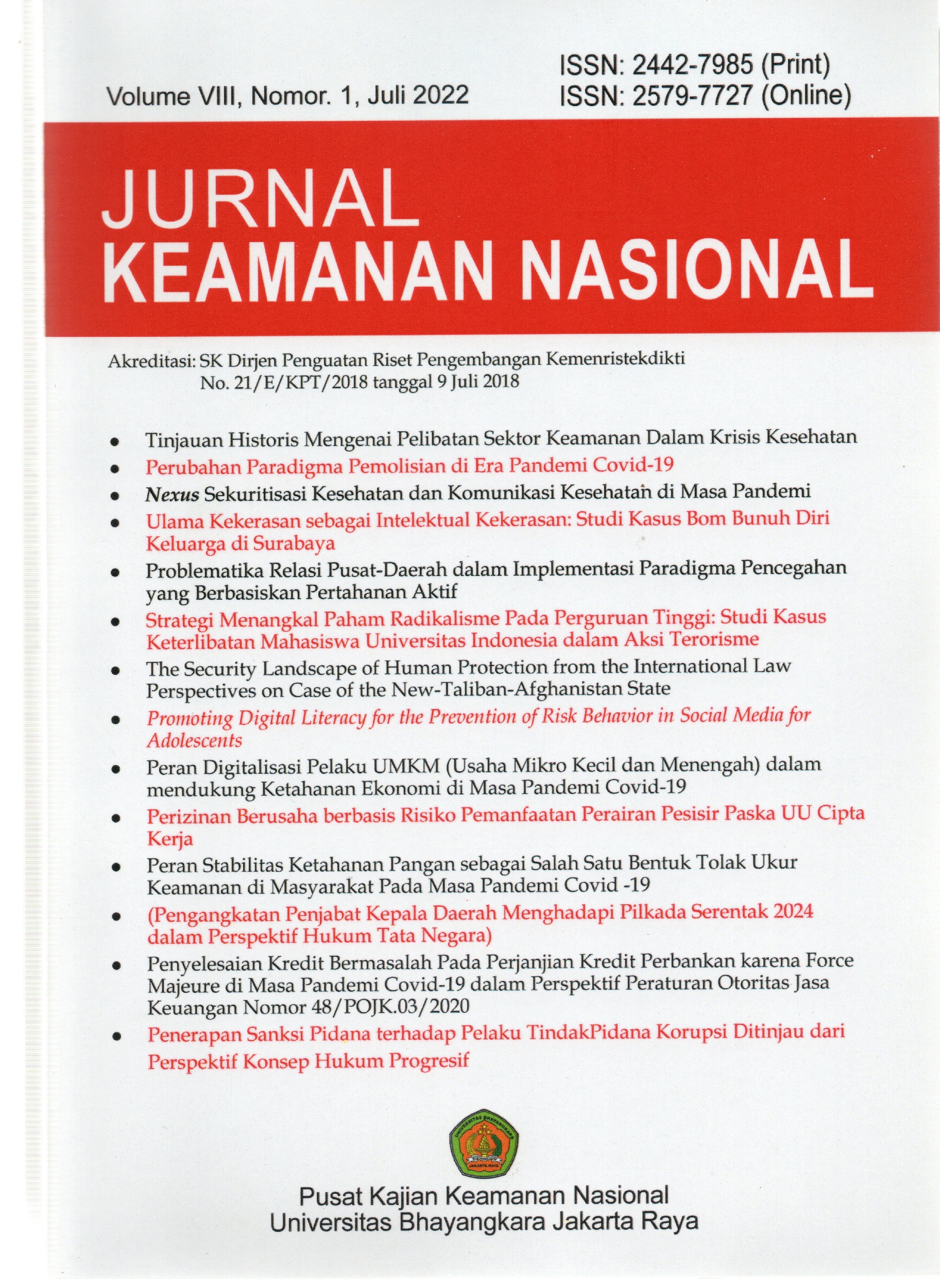Problematika Relasi Pusat-Daerah dalam Implementasi Paradigma Pencegahan yang Berbasiskan Pertahanan Aktif
DOI:
https://doi.org/10.31599/ewd0mq40Keywords:
Active Defense; Central-Regional Relations; Evidence based policy; Theory of ChangeAbstract
This study aims to review the meaning of ‘prevention’ and the contestation of its application in the Active Defense scheme contained in the National Action Plan for the Prevention and Eradication of Abuse and Illicit Trafficking of Narcotics (RAN P4GN) and Narcotics Precursors for 2020-2024. The Active Defense-based prevention module requires massive synergies between Government Organizations and Civil Society Organizations that are able to realize a participatory form of collaboration, namely interactive collaboration with community involvement as concentric. However, ‘inequality’ often arises and sinks at the level of policy formulation that should be balanced between central and regional stakeholders. The rigidity of the process of identifying data and information, coupled with the lack of references to academic studies on evidence-based policies regarding the problem of narcotics trafficking and abuse,
actually widens the bias in recommendations that seem odd. This paper appears as a response to review and re-examine the contestation of the problematic meaning of Prevention in the P4GN design through the perspective of the theory of change.
Downloads
Downloads
Published
Issue
Section
License
Please read and understand the copyright terms for submissions to this journal.
Copyright Notice
The Jurnal Keamanan Nasional is under the Creative Commons Attribution 4.0 International (CC-BY 4.0) License, according to which:
1) Authors retain copyright and grant the journal the right to first publication, with the work simultaneously licensed under the Creative Commons Attribution (CC-BY 4.0) that allows the sharing of articles published with the acknowledgement of authorship and the initial publication in this journal.
2) The authors are authorized to make additional contracts separately for distribution of the version of the work published in this journal (for example, publication in an institutional repository or as a chapter of the book), as long as there is recognition of authorship and initial publication in this journal.
3) Authors are authorized and encouraged to publish and distribute their work online (for example, in institutional repositories or on their personal pages) at any time before or during the editorial process, as it increases the impact and reference of the published work.













